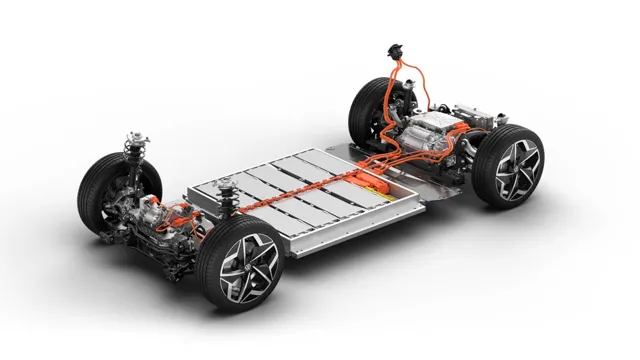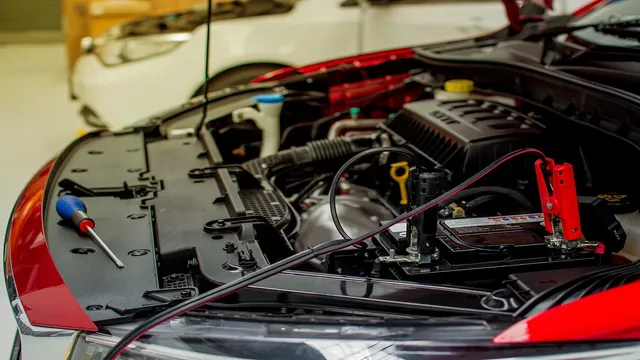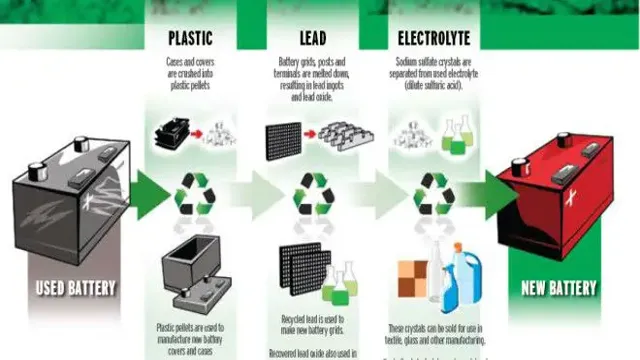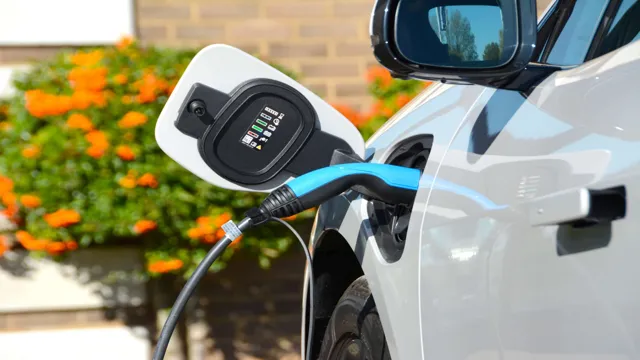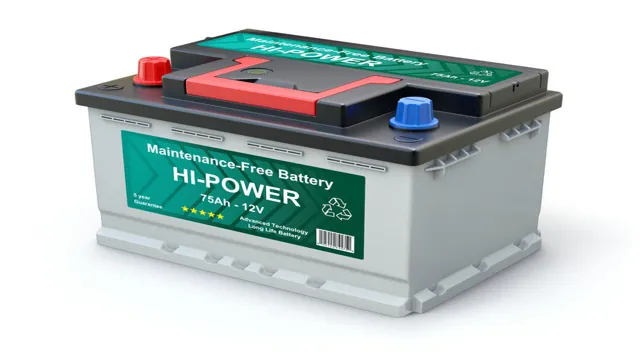10 Electric Car Battery Trends That Will Revolutionize the Auto Industry
Electric cars have taken center stage in the automotive industry with their environmentally friendly and cost-effective features. However, the future of electric vehicles largely depends on the performance and capabilities of their batteries. Over the years, battery technology for electric vehicles has made tremendous strides, with more efficient and reliable batteries being developed each year.
As we look into the future of electric car battery trends, it is becoming increasingly clear that the industry is poised for a significant transformation. But what are the trends shaping the future of electric car batteries? And how are they likely to change our driving experience? In this blog post, we’ll take a closer look at the emerging trends in electric car battery technology, including increased energy efficiency, battery durability, and cost-effectiveness, and explore what they mean for the future of electric vehicles. So fasten your seatbelts, and let’s take a ride into the future of electric cars!
Growth in Electric Car Sales
The electric car market has shown significant growth over the past few years, with more and more consumers opting for environmentally friendly vehicles. One of the key factors driving this trend is the advancements in electric car battery technology, which have drastically improved the range and efficiency of electric vehicles. Battery manufacturers have been investing heavily in research and development, resulting in batteries that are more durable, faster charging, and capable of supporting longer distances.
With the increasing demand for electric cars, we can expect to see further improvements in battery technology in the future. The electric car battery trends are moving in a positive direction, and the future looks bright for sustainable transportation.
Data on market growth and projections
Electric car sales have been on the rise in recent years, with projections showing continued growth for the foreseeable future. In fact, a report from Bloomberg New Energy Finance estimates that electric vehicles will make up 10% of global passenger vehicle sales by 2025, up from just 1% in 201 This is due in large part to advancements in battery technology, increasing demand for sustainable transportation options, and government incentives promoting the adoption of electric vehicles.
The burst in electric car sales shows no sign of slowing down, with major car companies such as Tesla, Nissan, and Ford all investing heavily in the production of electric vehicles. As more consumers become conscious of their carbon footprint, it’s likely that we’ll continue to see a shift towards sustainable transportation options, making electric car sales a promising market to watch.
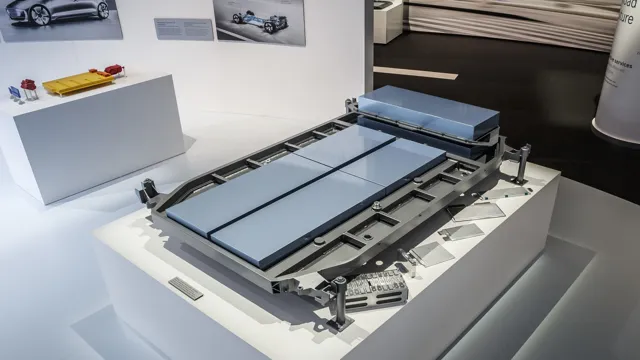
Impact on demand for electric car batteries
Electric car sales have been growing steadily over the last few years, which has led to an increase in demand for electric car batteries. This growth has been driven by a number of factors, including concerns about climate change, advances in battery technology, and government incentives for electric car buyers. As a result, many battery manufacturers have ramped up their production of electric car batteries to meet this increasing demand.
This has created a burst in the industry, with more and more companies entering the market in an effort to capitalize on this growth. However, with this burst comes some perplexity, as not all of these companies are able to produce high-quality batteries that meet the safety and performance standards required by consumers. This has led to a need for increased regulation and oversight to ensure that consumers are getting safe and reliable batteries that meet their needs.
Overall, the growth in electric car sales has had a significant impact on the demand for electric car batteries, and this trend is likely to continue as more consumers make the switch to electric vehicles.
Battery Technology Advancements
Electric car battery trends have been progressing rapidly in recent years. One significant advancement is the implementation of solid-state batteries, which are safer and more efficient than traditional lithium-ion batteries. Solid-state batteries use a solid electrolyte instead of liquid, which eliminates the risk of combustion and improves energy density.
Another trend is the increased availability of fast charging stations, reducing the time it takes to recharge electric car batteries. Additionally, manufacturers are working on improving battery longevity and reducing costs through innovations such as silicon anodes and recycling programs. As electric cars become more mainstream, the demand for better battery technology will continue to drive innovation in the industry.
It’s exciting to see how this technology will continue to evolve and shape the future of transportation.
New materials and designs
Advancements in battery technology have been driven by the need for more efficient and sustainable energy sources. New materials and designs have come out in recent years that offer better energy density and longer-lasting batteries. For instance, researchers are exploring how to use lithium-sulfur batteries, which have up to five times the energy density of traditional lithium-ion models.
These batteries could significantly improve the range of electric vehicles, making them even more practical for everyday use. Other promising battery designs include solid-state batteries, which are safer and more stable than liquid-electrolyte batteries. These new battery technologies are helping to pave the way for a greener future, where renewable energy is the norm.
It’s exciting to see the pace of innovation in this field and how it’s driving positive changes in the world.
Increased range and performance
Battery technology advancements have led to the increased range and performance of many electronic devices, from cars to smartphones. With the introduction of lithium-ion batteries, these devices can hold more energy in a lighter and more compact package than previous battery technologies. Additionally, advancements in battery management systems have allowed for more accurate monitoring of battery health and usage, leading to longer overall battery lifespan.
These improvements in battery technology have also allowed for the development of fast-charging systems, reducing the time it takes to fully charge a device. Overall, the advancements in battery technology have greatly improved the usability and reliability of electronic devices, allowing people to use them for longer periods without having to constantly recharge. With this in mind, it’s exciting to think about the future of battery technology and the impact it will have on our daily lives.
Cost reduction and affordability
Battery technology advancements are crucial for reducing costs and making electric vehicles more affordable. One significant advancement in the field is the development of solid-state batteries. These batteries use a solid electrolyte instead of a liquid, allowing for higher energy density and faster charging times.
Another promising technology is lithium-sulfur batteries, which have the potential to provide higher energy density and lower costs than current lithium-ion batteries. Additionally, researchers are exploring the use of alternative materials for battery components, such as sodium or magnesium instead of lithium. These advancements could significantly reduce the reliance on rare and expensive materials and make electric vehicles more accessible to the general public.
As the demand for electric vehicles increases, the pressure is on to develop cost-effective and efficient battery technology that can power them.
Sustainability and Recycling
Electric car battery trends reveal a growing focus on sustainability and recycling. As the adoption of electric vehicles continues to increase, manufacturers are prioritizing the development of batteries that can be reused or recycled. This is because lithium-ion batteries, which are commonly used in electric vehicles, can be harmful to the environment if not disposed of properly.
In response, companies are exploring ways to extract valuable metals from used batteries and reuse them in new ones. Furthermore, battery recycling programs are becoming more widespread, with some manufacturers offering incentives to customers who return their used batteries for recycling. With these efforts, the electric car industry is moving towards a more sustainable future and reducing its impact on the environment.
As a consumer, it’s worth considering not only the performance of an electric vehicle, but also its sustainability and recycling capabilities when making a purchase.
Environmental benefits of electric car batteries
When it comes to electric car batteries, sustainability and recycling are at the forefront of the conversation. One of the most significant environmental benefits of these batteries is their ability to be recycled and repurposed. Unlike traditional gasoline-powered cars, which produce harmful emissions and require constant consumption of limited resources, electric car batteries can be recharged and reused time and time again.
Moreover, when their useful life comes to an end, the batteries can be recycled, allowing valuable materials such as lithium and nickel to be extracted and reused in new products. This not only reduces waste but also conserves natural resources, making electric cars a more sustainable and eco-friendly option for transportation. Therefore, the transition to electric cars can have a positive impact on the health of our planet by promoting sustainability and responsible resource management.
Recycling initiatives and processes
Sustainability and Recycling Recycling is an excellent way to reduce waste and help the environment. Many organizations and individuals are working towards making recycling initiatives and processes more efficient and widespread. Recycling includes various methods like reusing resources, composting, and recycling paper, plastic, glass, and other materials.
Recycling companies use advanced technology to collect, sort and process waste products to ensure they are efficiently reused. In addition, many governments have implemented recycling policies and programs to encourage people to recycle and reduce waste. Recycling has become a crucial aspect of sustainability as it helps in the conservation of our natural resources, energy, and protects the environment.
By recycling and promoting sustainable practices, we can reduce the impact of waste on our planet and pave the way for a healthier, greener future.
Future Outlook
Electric car battery technology is constantly evolving, with trends moving towards more efficient and longer-lasting batteries. One of the biggest advancements in this field is the development of solid-state batteries, which promise higher energy densities, shorter charging times, and improved durability compared to traditional lithium-ion batteries. In addition, battery manufacturers are focusing on reducing the use of cobalt, which is expensive and sourced from unstable regions.
Instead, they are turning to materials like nickel and manganese to create more sustainable and cost-effective batteries. Furthermore, advancements in artificial intelligence and machine learning are being integrated into battery management systems, allowing for more precise monitoring and optimization of battery performance. As electric car adoption continues to grow, these trends will likely continue to shape the future of electric car battery technology, making them more efficient, environmentally-friendly, and accessible to the masses.
Predictions for future battery technology
Battery technology has come a long way in recent years, and the rapid pace of advancement shows no signs of slowing down. The future looks bright for batteries as researchers are constantly developing new materials and designs that promise to improve storage capacity, charging speed, and overall performance. One of the major breakthroughs in battery technology is the use of solid-state electrolytes, which replace the liquid electrolytes used in many current batteries.
Solid-state batteries promise to provide higher energy densities and improved safety compared to traditional liquid-electrolyte batteries. Another promising development is the use of lithium-sulfur batteries, which have the potential to offer energy densities up to five times greater than lithium-ion batteries. These advancements will not only revolutionize the way we use batteries in consumer electronics but will also enable the widespread adoption of renewable energy sources.
With so much potential on the horizon, it’s an exciting time to be invested in battery technology.
Role of government policies and incentives
As we move towards a greener future, the role of government policies and incentives will be more important than ever. Governments around the world have already implemented a range of measures to encourage the adoption of sustainable practices, such as tax incentives, grants, and subsidies. These policies have been successful in reducing carbon emissions and promoting the use of renewable energy.
However, there is still much more to be done. In the future, we can expect to see governments implementing even more ambitious policies to address climate change, such as carbon pricing and a shift towards a circular economy. These measures will help to create a more sustainable future for everyone.
It will ensure that businesses are held accountable for their environmental impact and incentivize them to adopt more sustainable practices. As individuals, we can also play our role in supporting these policies and making sustainable choices in our daily lives. Together, we can create a greener future for the planet and future generations.
Conclusion
In conclusion, the trends in electric car batteries are booming just like the sound of a Tesla Model S Ludicrous Mode acceleration. With advancements in technology, we can expect longer ranges, faster charging times and increased efficiency. It’s time to strap in, put the petal to the metal, and ride the wave of this electrifying trend towards a cleaner and greener future.
“
FAQs
What are the latest trends in electric car batteries?
The latest trends in electric car batteries include advancements in solid-state batteries, increased energy density, longer lifespan, and faster charging times.
How do solid-state batteries differ from traditional lithium-ion batteries in electric cars?
Solid-state batteries differ from traditional lithium-ion batteries in electric cars by using a solid electrolyte rather than a liquid electrolyte, which allows for higher energy density, longer lifespan, and safer operation.
What factors affect the lifespan of an electric car battery?
The lifespan of an electric car battery is affected by factors such as temperature, charging habits, depth of discharge, and the manufacturer’s design and materials used.
How is the charging infrastructure for electric cars advancing to support increased adoption?
The charging infrastructure for electric cars is advancing through the development of more powerful and versatile charging stations, increased public and private investment, and collaboration between automakers, utilities, and governments to expand charging networks.
